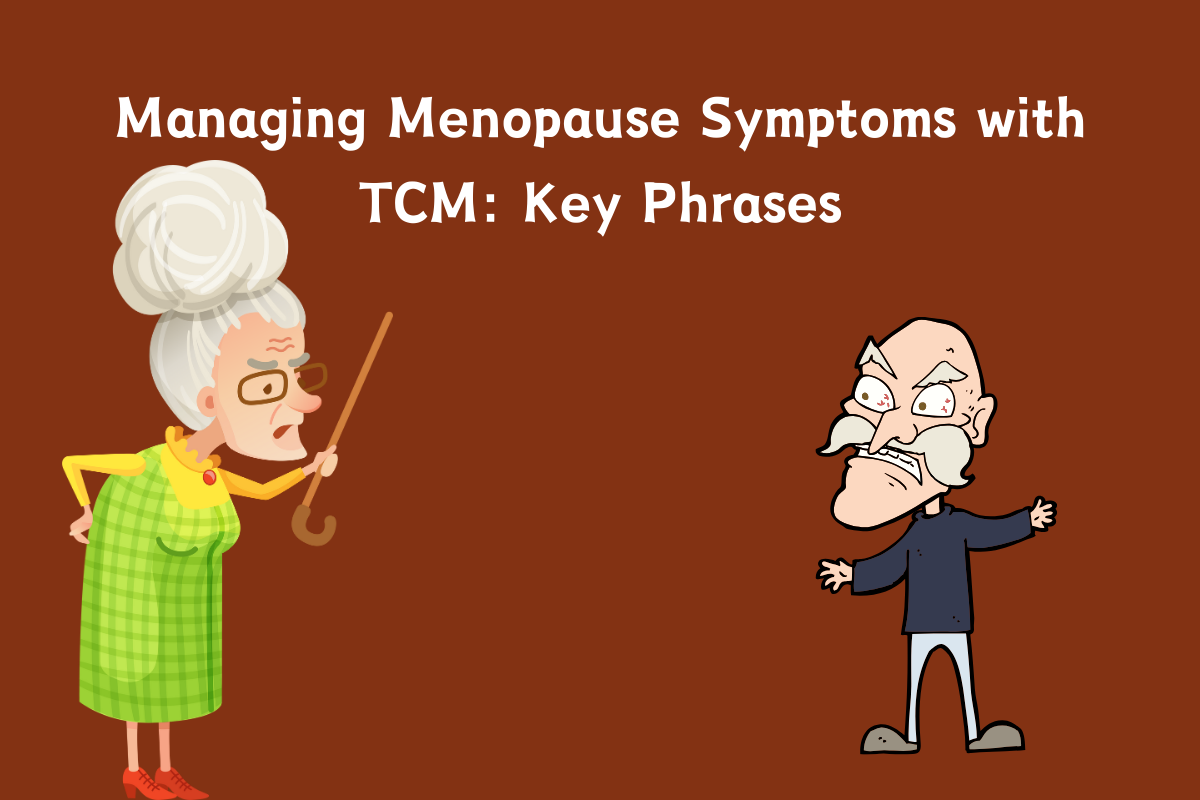Managing Menopause Symptoms with TCM: Key Phrases
Menopause is a significant transition in a woman's life, often accompanied by various physical and emotional symptoms such as hot flashes, mood swings, and sleep disturbances. Traditional Chinese Medicine (TCM) offers a holistic approach to managing these symptoms, focusing on balancing the body’s energies and promoting overall well-being. In this article, we will explore essential Mandarin phrases for discussing menopause symptoms with a TCM practitioner, helping you navigate these conversations effectively.

Scene 1: Discussing Hot Flashes
Patient:
I'm experiencing severe hot flashes. Can TCM help?
我正经历严重的潮热。中医可以帮助吗?
Wǒ zhèng jīnglì yánzhòng de cháorè. Zhōngyī kěyǐ bāngzhù ma?
Doctor:
Yes, we can use herbal treatments to balance your body’s energy.
是的,我们可以用草药治疗来平衡你的身体能量。
Shì de, wǒmen kěyǐ yòng cǎoyào zhìliáo lái pínghéng nǐ de shēntǐ néngliàng.
Patient:
How long will it take to see improvement?
多久能看到改善?
Duōjiǔ néng kàndào gǎishàn?
Doctor:
You might start noticing changes within a few weeks.
几周内你可能会开始注意到变化。
Jǐ zhōu nèi nǐ kěnéng huì kāishǐ zhùyì dào biànhuà.
Scene 2: Managing Mood Swings
Patient:
I've been very emotional lately. Is there a TCM remedy?
我最近情绪波动很大。有中医的解决办法吗?
Wǒ zuìjìn qíngxù bōdòng hěn dà. Yǒu zhōngyī de jiějué bànfǎ ma?
Doctor:
Yes, acupuncture and specific herbs can help stabilize your mood.
是的,针灸和特定的草药可以帮助稳定情绪。
Shì de, zhēnjiǔ hé tèdìng de cǎoyào kěyǐ bāngzhù wěndìng qíngxù.
Doctor:
Are there specific times when you feel more irritable?
有没有特别烦躁的时间?
Yǒu méiyǒu tèbié fánzào de shíjiān?
Patient:
It’s worse in the morning.
早上比较严重。
Zǎoshang bǐjiào yánzhòng.
Scene 3: Discussing Sleep Disturbances
Patient:
I’ve been having trouble sleeping through the night.
我晚上睡不安稳。
Wǒ wǎnshàng shuì bù ānwěn.
Doctor:
Do you wake up frequently during the night?
你晚上会经常醒吗?
Nǐ wǎnshàng huì jīngcháng xǐng ma?
Patient:
Yes, I wake up at least three times.
是的,我至少醒三次。
Shì de, wǒ zhìshǎo xǐng sān cì.